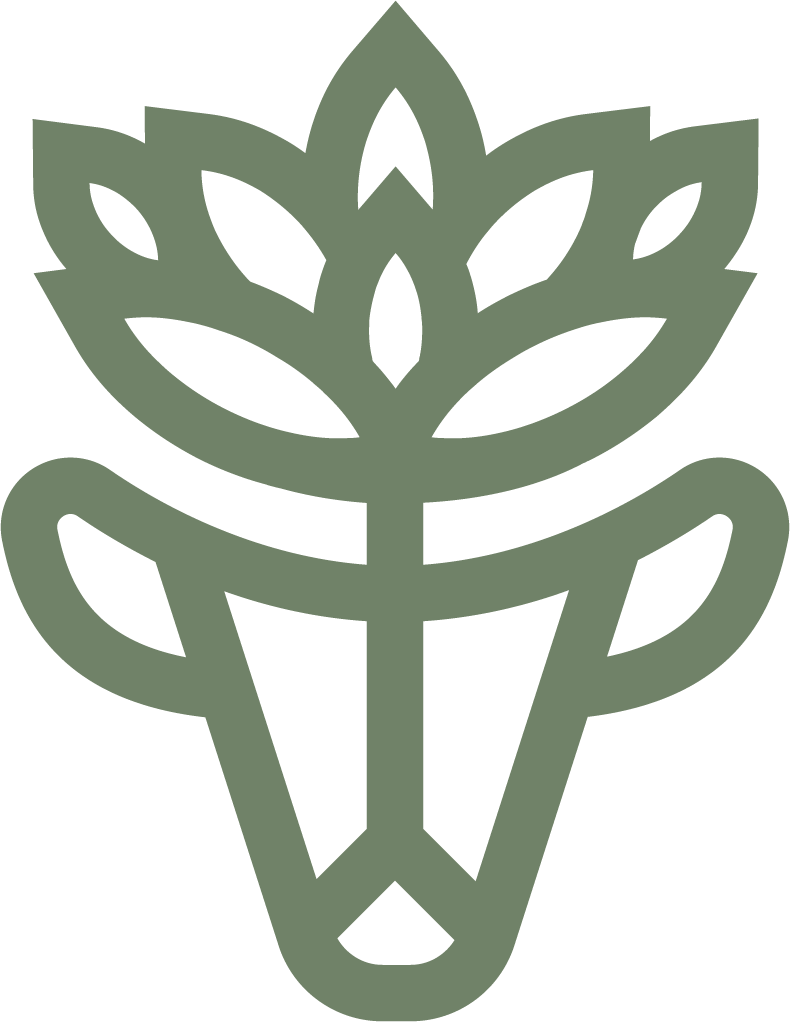Denise’s Story
Elizabeth came into my life quite unexpectedly when I found her in a small parcel outside my neighborhood in 2020, on my 50th birthday. I had always been an enormous cow fan, and moving to Tennessee sure fed that obsession because you cannot go 1/2 a mile without seeing a herd of cattle. I watched the cows come and go in the field next to my house. Calves were born in the spring, and I watched them grow, and then one day, they were gone...
Queen of the pasture and the cow who started it all, the beautiful Elizabeth (Charolais)
Elizabeth was only a few months old when I first saw her. I immediately went to say hello. Eventually, I ran into the young man who bottle-fed her and asked if I could visit her daily. Not only was she orphaned, but she was also blind in one eye. I thought it was a stubborn infection, but it turns out that, regardless of how it started — whether from an illness or an injury — her eyesight couldn’t be saved.
At the end of December, the young man said he didn't want her, and it was time to sell. Before I knew what I was saying, I blurted out that I would take her. As the words came out of my mouth, I looked across the field to my home and realized I would have to move to keep her. Thanks to COVID and the manure-filled year we all had, it wasn’t the best time for any of this to happen. I certainly couldn’t keep her in my HOA neighborhood.
I attempted to find a farm rescue for her, but they were all full. I tried to find a home for her with people who would care for her as a pet and not return her to the farming industry, but I had no luck. She is a registered Charolais with excellent breeding and would most likely have been used as a breeding cow, but I didn’t want that for her. She was a bit timid and skittish because of her decreased vision. It was necessary to have patience with her.
After weeks and weeks of sleepless nights and days filled with crying and worry, my daughter finally encouraged me to keep her. Having never seen me that distraught over anything, she said I needed to keep the cow, no matter what it took. Limited funds, lousy timing, low home inventory, land selling in days...I had to find a way. Even if I could have found someone, giving her to someone else didn't bring me joy and left me in tears.
I purchased 14 acres of vacant land in McMinnville, TN to open the Tennessee Cow Rescue. After searching for land for months and miles, I came across this parcel and knew it was the “right” (samma in Sanskrit) place for us. Shortly after selling my house and moving here to the farm, Agnes joined us, and it was well-timed because Elizabeth was tired of being alone. Cows are herd animals, and being was hard on her.
The first year, I lived in an RV with Buddha, my 160lb dog, before building a garage with an apartment above. I’ll build a house someday, but right now, I’m too tired, and there are too many other things to do. Building a barn for the animals is more important to me than building a house.
In the last four years, we have rescued twelve cows, fifteen cats, and a sheep. I was also able to save dozens of other cows by finding them new homes. I added a roof to an old corral to create a hay barn and summertime shelter. Sanjay, our handicapped mini cow, has his own house in his pasture, where he lives with Little, the lamb, and our blind heifer, Faith. The cows have an additional shelter in the main pasture, which we added several years ago, and we have a run-in for cows in quarantine. An ongoing project is to clear the woods, creating a clear path to the cave for visitors visiting the farm.
Update: (you can read the 6.15.2025 update below)
2025 UPDATE COMING SOON!
LOSES:
UPCOMING PLANS:
Listen to our story on the WORLD GONE GOOD PODCAST with Steve Silverman
Past Updates…from Denise’s Story



